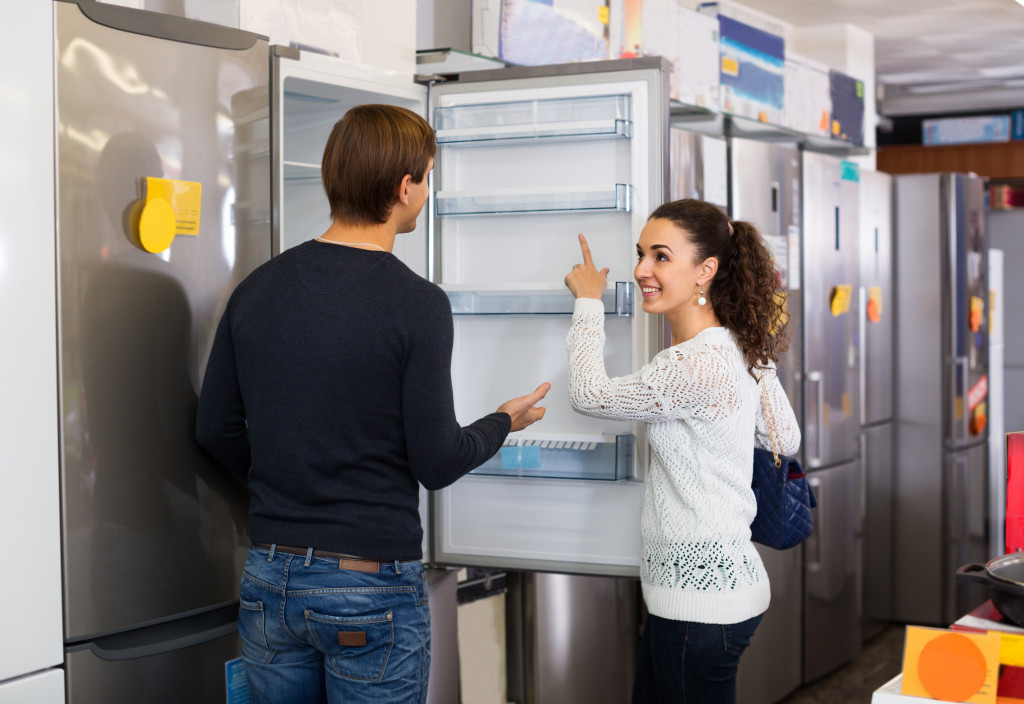The pandemic has transformed consumption patterns, many of these changes are here to stay. One of the most notable is how households now allot bigger cart spaces for the essentials while cutting shopping frequency to the minimum. And, with consumers having a higher propensity to do thorough research before proceeding with purchasing, especially big-ticket items, appliance retailers could heed the following pointers:
What do Consumers Need?
A year and a half into the pandemic, there has been a reported spike in consumer confidence and such a positive sentiment covers appliances and homes. Although inflation could not be discounted, especially after an unprecedented health crisis, the remarkable uptick in consumption appetite foreshadows a steady recovery by both the manufacturing and retail sectors. But, they cannot be too lax, either, as consumers are keener on qualities they would like integrated into their purchases.
Over a year of having to mostly make do with themselves instead of hiring help for simple home chores and fixes, end users are becoming in touch with their technological needs. This expedited the release of intuitively designed appliances that incorporate as many functions as a user may think of. As we all navigate the new normal, the more we replace our traditional notion of bespoke design from customizing only a device’s form to penetrating its inner mechanisms in an attempt to feel out what the user needs at the moment.
In comes the intensified demand for smart technology. From multi-purpose cookers, showerheads, vacuum cleaners, and washers, there is no seeing where smart technology could get all in the name of bringing an all-in-one solution to a consumer’s day-to-day woes.
What this means for appliance retailers is taking steps to empathize with consumer sentiments. And, this goes not only for the practicality of an item but more so on its sustainability.
Long-lasting, cheap upkeep, and, most importantly, the ability to keep up with their low-carbon goals are now non-negotiable’s in an average buyer’s list.

Handling it With Care
That most shopping is now being done online is something many of us did not know we had to prepare for so abruptly until the pandemic. And, while we cannot contest the convenience this brings to the shopper, it poses new challenges for the sellers too.
Buyers long for that visual and tactile experience they can only have with in-store shopping and, although physical stores are coming back one by one, they have to make do with what is more widely available and those are online stores. With this, businesses have to make up big time for the lack of physical interaction between customers and sales representatives by not only providing the most seamless store user interface but also catering to all their needs as if they were still keeping watch of the items they bought on the checkout counter.
Now that they cannot see for themselves that the appliances they are about to pay for are in good condition, retailers have to solely bear the responsibility of quality assurance. From the warehouse to the buyer’s doorstep, they have to ensure that units and their auxiliary parts, if any, are handled with utmost care. Gone are the days when wrapping the parcel with a striking red ‘Handle with Care’ or ‘Fragile’ sticker is sufficient in making sure the item arrives at the buyer’s location in one piece.
Ensuring Value Add
Another problem that presses innovation in the entire supply chain is fulfilling orders on time. Consumer patience can only wear more thinly as their parcels pile up remaining undelivered beyond the expected date. This is especially the case during holidays and this calls for enhanced coordination by retailers with their partners in logistics.
Retailers also have to think about how much burden the consumer has to take with not being able to inspect appliances themselves and risking their cybersecurity every time they shop online. The least an online seller could do is be responsive to all inquiries and provide as much information about the products of concern as possible.
And, as many appliance categories like entertainment and home kitchen packages are a big expenditure for households of any income bracket, retailers need to reassure their customers of the quality of their products and have traceable service personnel in case they experience trouble using their products.
To seal a deal that is favorable for both the seller and the buyer, a retailer should initiate the legal documentation of a product’s warranty. To further reassure the buyer that they chose well, the dealer or retailer could have representatives come over so both parties can sign the agreement in the same venue. But, for practical purposes, the warranty documents could be sent to their address with the help of a contract delivery service provider.
With manufacturers, retailers share the responsibility to offer only to bring top-of-the-line appliances to the market. Keeping this in mind in the new normal can earn them loyal customers while avoiding warehousing and shipping mishaps which could incur unsolicited costs.

